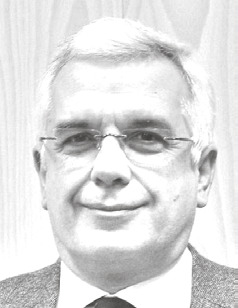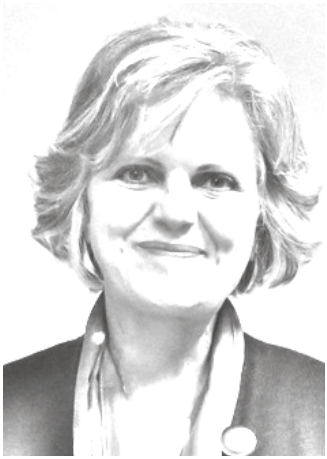HealthManagement, Volume 18 - Issue 1, 2018
Whatdohealthcareleaderssee ahead?
HealthManagement.orgspoke tohealthcareleadersonthe futureofthe sector.TheconsensusisArtificialIntelligence(AI),leadershiptraining,populationhealth,cross-collaborationand developmentofvalue-basedhealthcarewilllead progressinhealthcare.
Prof.LluísDonosoBach
Editor-in-ChiefImaging,HealthManagement.org

"Thereareanumberof
trendsIseebecomingmore important for
imagingin2018.Futureradiologists willbecome imaginginformationexpertsandthere willbeanincreaseinopportunitiesandchallenges ofmachine learninginourprofession. Itwillalso beinterestingtowatchthe radiologyworkforcein the eraofartificialintelligenceandimage-guided therapy.Theroleofquantitativeimagingin treatmentplanningandtheroleofimaging invalue- based healthcaresystemsarealsoworthwatchinginadditiontoradiology’simpactonpopulationhealth.
ChristianLovis
Editor-in-ChiefIT, HealthManagement.org

“For2018 Iwouldsaythat wewill see anexplosion of AI inthefield ofimage recognition,embedded in
currenttoolsas decision support. ew businessmodels,suchasZebra whichuses
data frommillions of scanstocatch
misdiagnosed diseases andearly-stagecancerswill alsobecome moreprominent.I also see consolidation oflarge groups as newplayers,such as Telecom/ Mobile/Fitnessin GermanyorFood Supply/Insurance/Fitness/Mobile Doctorsin Switzerland.Wecansee this with Amazon, Apple and Google tooofcourse butthese otherexampleswillput increasingpressure on traditional players. Precision medicinewillbecomeahuge driver for
data-drivenscienceinlifesciences andmedicine. Data willincreasingly becomethenewcurrencyinhealth, andcitizen,patientsandcare providerswillfurtherchallenge open datamovementsthatwillslowlyfail becauseofthe profit-driven models behind data-driven technologies(such asAI). I amcertainthatembeddedsystems willincrease androboticsforsurgerywillslow downdespite increasingprecisionintelemanipulation becauseoffailingtoshowreal benefitinoutcomes/costsinmany cases. Initial Coin Offerings(ICO) andblockchains willhavearemarkablepeakthesefewnextyears,but Ifearthat itwilltakewaylongerto reallyprovideusage
inhealth.Finally, of course,patient/citizen communitieswillgrow.”
MichaelE.Porter Robert S. Kaplan
HarvardBusinessSchool Harvard Business School


“Value
based healthcare is penetrating rapidly across many countries, and in peer-reviewed medical literature. national health systems are
embracing value-based healthcare as their strategic framework. More
providers are moving to integrated practice units to care for
conditions and at-risk populations such as poor-elderly, frail-elderly,
and opiate-addicted patients. The international Consortium for health
outcomes Measurement (ICHOM) and the Organisation for Economic
Cooperation and Development (OECD) are collaborating to expand adoption
of standardised outcome measurement for selected conditions across the
developed world. Corporations and regional governments, such as
Washington State in the US, are increasing their use of value-based
bundled payments to contract directly with provider “centres of
excellence” for comprehensive care of patients with acute and chronic
conditions."
JosepPicas
EuropeanAssociationof HealthcareITManagers, President

"Thereisaglobalconsensus about the need forcollaborationbetween healthcare andsocial services.Ifwe aretalking aboutintegrated carethis development isabsolutely imperative.But ifdigitalisationinhealthcarehasevolvedslowly,in thesocial services thistechnologyisjustat thebeginning. Thehopeisnecessitywillpushadvances hard.It isnot going tobe easy, butwecan see some interesting andhopeful signs: preventive modelling onvulnerability,fragilityandskillednursingfacilities readmissions aresome examplesamongstothers.”
SherryPolhill
AassociateVP,
Hospital LabsandRespiratoryCare, UABMedicine

“There will be more emphasis ondeveloping leadership in healthcare. Ihaveseen this in myday-to-daywork.In2015,I started aLeadershipSchool for employees interested ingetting intomanagement.Therewas aneed
todevelop leaders so I took on theresponsibilityto teachtalentedpeople inthelab environment. The curriculum provides introductory sessions on lab finance and quality and information systems followedbyleadershipskillsdevelopmentcovering topicssuch as communication,emotional intelligence andhowtomanage stress
forexample.Anotherexcitingaspect isforcurrent supervisorsandabove. It was evident that current leaders need to remain flexible and
effectively manage all sorts of complex changes for the future. The
vision includes preventing burnout, sharpening leadership skills, and
helping people develop their potential."















